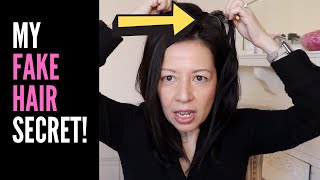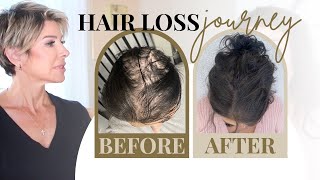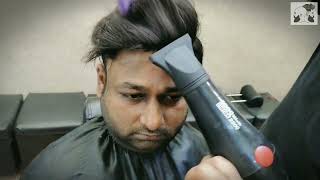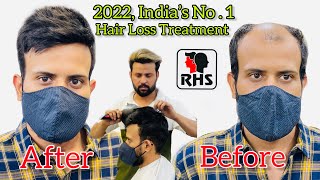3 Times In Your Life When Hair Loss Is Normal
 Hair loss can be a very scary thing, so much so that we often find ourselves looking at our brushes and other hair tools to ensure that we are losing just enough hair to prevent panic.
Hair loss can be a very scary thing, so much so that we often find ourselves looking at our brushes and other hair tools to ensure that we are losing just enough hair to prevent panic.
The truth is there are periods in our life when our body will lose what might look like an excessive amount hair and it pays to know when these periods are so we are not caught off guard and forced to text the nearest hair guru a picture of an obscenely large hairball. With that said starting from birth here are the top 3 times that hair loss happens and it is totally normal.
Infant hair loss
We get a ton of questions from concerned moms who are noticing that the hair that their precious bundles of joy is falling out at rates that is enough to cause confusion. We always recommend that you consult with your child’s pediatrician but for all intents and purposes hair loss in infants is perfectly normal.
Via the BabyCenter:
Here’s why it happens: Hair has a growth stage and a resting stage. The growth stage lasts about three years, and the resting stage lasts about three months (although anywhere from one to six months is normal). During the resting stage, the hair remains in the follicle until the new hair starts coming in.
About 5 to 15 percent of hair on the scalp is usually in the resting phase at any one time, but stress, fever, or a hormonal change can cause a large number of hairs to stop growing all at once. The shedding begins when the next growth stage starts up about three months later.
A newborn’s hormone levels drop right after birth, which can cause him to lose the hair he was born with. (New moms often lose large amounts of hair for the same reason.)
Parents are sometimes surprised to discover that when a baby grows a new head of hair it’s a completely different color and texture than what he was born with.
In my own experience, my son was born with a full head of hair, lost all of it by the time he was 6 months old, and had a new head of hair by the time he was 2 years old. Again, check with the pediatrician to be sure the hair loss is normal and if it is, don’t you worry your baby’s hair will be back in no time.
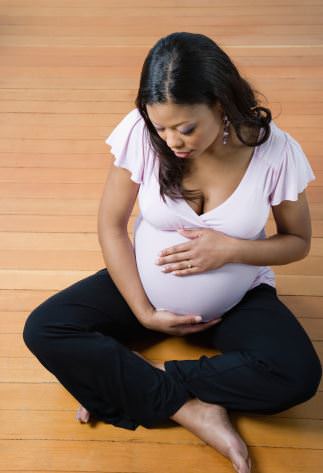 Postpartum hair loss
Postpartum hair loss
As if your baby losing hair wasn’t enough, you might lose quite a bit of hair as well after you give birth:
“Postpartum hair loss commonly starts at around three months after birth. The amount of time between childbirth and the onset of shedding corresponds to the length of the resting phase of hair growth (between 1 and 6 months, with an average of three months)”
Many of us lose most of our hair around the edges and at the crown of our head which is the absolute worst place to lose hair if we had a choice, but what can a girl do?
The only thing you can do is to continue to follow the doctor’s orders with your prenatal vitamins*, eat as healthy as you can and be absolutely patient with your hair. Your hair will be back at full capacity soon just hang in there!
Normal shedding
This part is very important because many of us have no idea what ‘normal shedding’ looks like even when we have a TWA. A great guide is knowing that normally we all shed at least 100 to 150 hairs per day and here is why:
Each hair follicle undergoes a growth stage that lasts two to eight years, followed by a two-month resting stage where no growth occurs. Then, the hair strand falls out and a new one begins to grow in its place.
For a healthy person, this means between 80 and 90 percent of hair follicles are growing hair at one time, while the rest of the follicles are resting or shedding.
It is very important that you understand what counts as normal shedding for you, and if you are not sure at the beginning of your hair journey we guarantee that pretty soon after taking care of your hair for awhile you will know what normal shedding is for you.
If for any reason you think that the shedding you are experiencing is outside of what is normal to you, it is absolutely ok to consult a dermatologist or doctor for an opinion.
Now that you know what not to worry about, this post would not be complete without mentioning that excessive hair loss is directly related to your overall health and sometimes genetics.
Times of stress, extreme weight loss or weight gain, or anxiety can cause hair fall, it is important to check with your health first before trying any products or concoctions to correct your hair loss.
Have you experienced any hair loss lately, is it normal or cause for concern? Comment below

